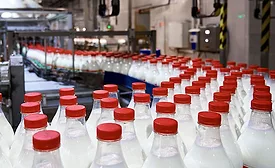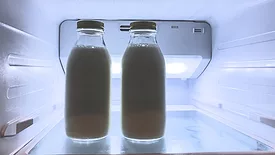Home » Keywords: » milk
Items Tagged with 'milk'
ARTICLES
The Use of UV-C Light in Combination With Hydrogen Peroxide to Disinfect Packages in ESL and Aseptic Beverages
The need for packaging materials that preserve the quality of products while preventing microbial contamination has become a critical focus for the beverage and dairy industries
April 10, 2025
Never miss the latest news and trends driving the food safety industry
Newsletters | Website | eMagazine
JOIN TODAY!Copyright ©2026. All Rights Reserved BNP Media.
Design, CMS, Hosting & Web Development :: ePublishing












